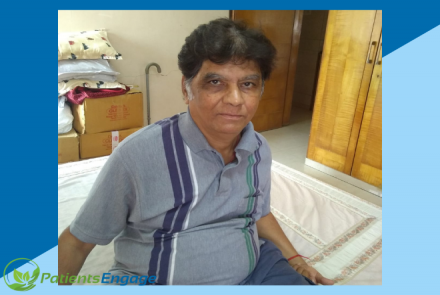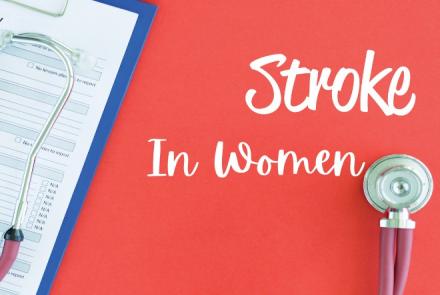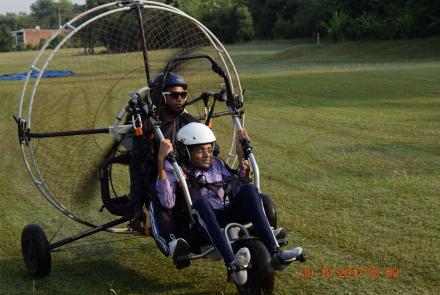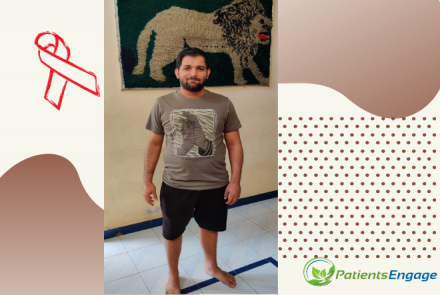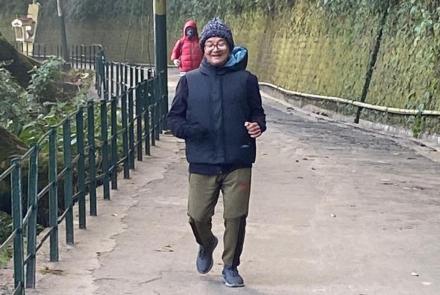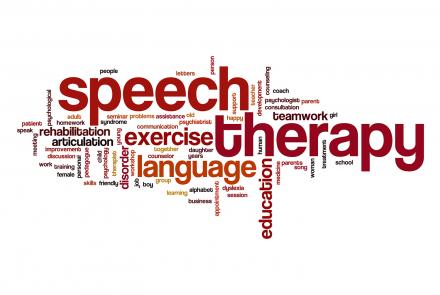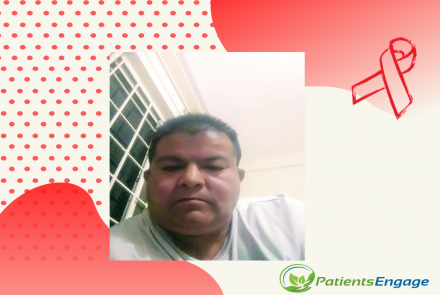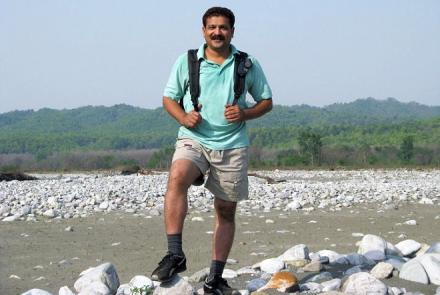Mr Bhawarlal Surana, 69 from Mumbai had a brain stroke at work. Fortunately he spotted the signs and acted fast. He shares the challenges he faced post-stroke and his mantra for a strong recovery.
Please tell us a bit about your condition.
I am a Stroke survivor of 11 years. I had a stroke in November 2010. I was 58 years old then.
What were the early symptoms? What made you go to a doctor?
It was a regular day that I started by waking up at 5 am and going for my walk at Five Gardens near…
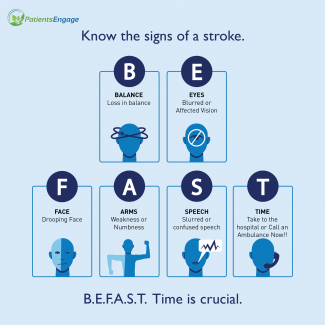
Acting within the golden hour for stroke is very important. It is therefore important that we all recognise the signs and symptoms of stroke. Now available in an easy to understand downloadable flyer form.
Stroke happens suddenly, often without warning. But acting in a timely manner is very important. If the patient gets treatment within the golden hour of 4.5 hours, the outcomes for the patient are far better.
Save this. Print this and put it up in an accessible and easy to find place like your fridge.
And don't forget to share this. Make sure everyone you know
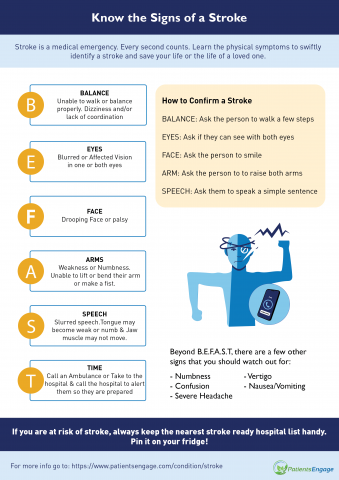
Download the PDF file on B.E.F.A.S.T Stroke Flyer below
Changed
05/Nov/2021
Community
Condition
PATIENTSENGAGE BEFAST STROKE FLYER PDF.pdf
(398.43 KB)

